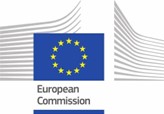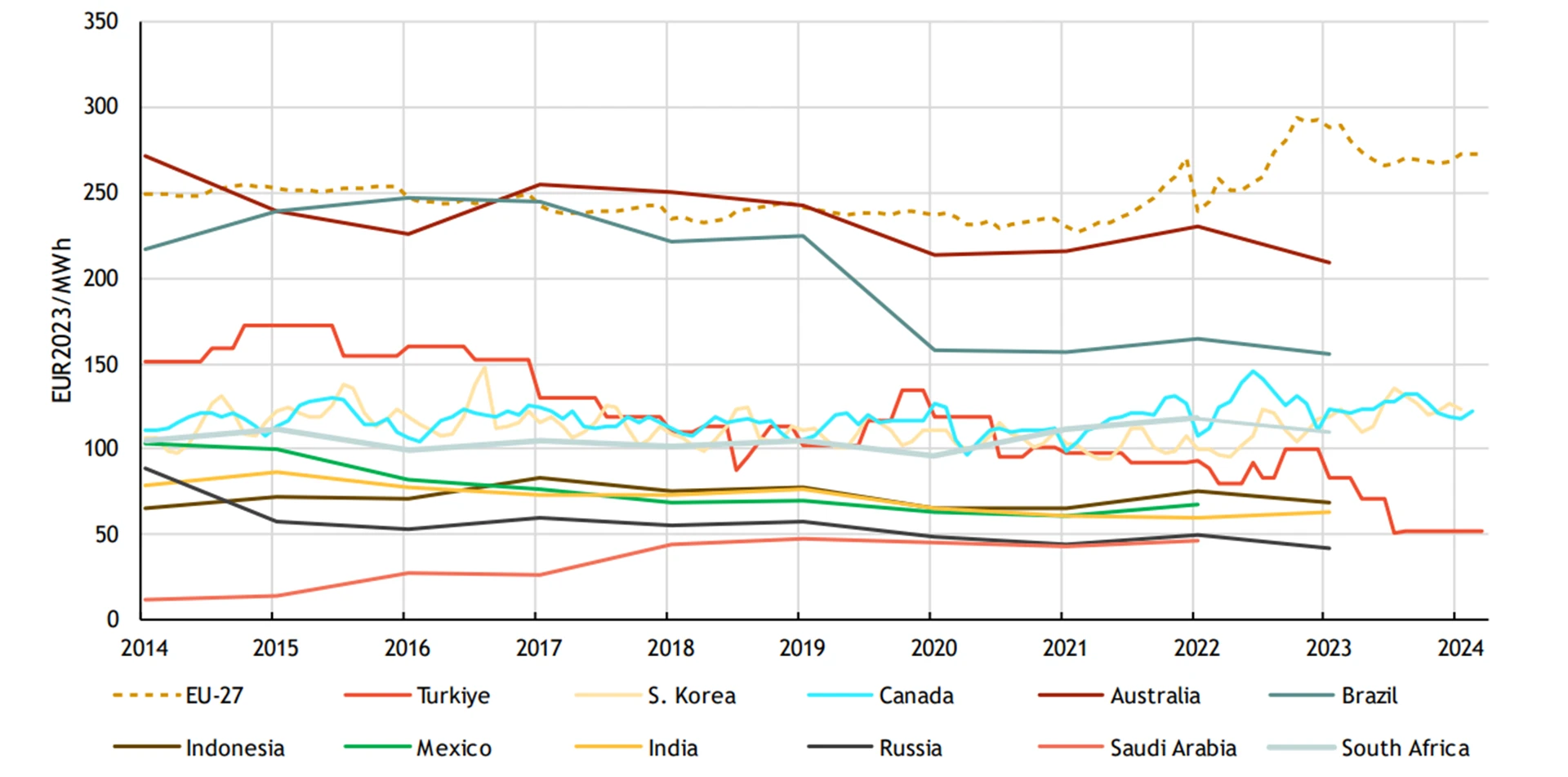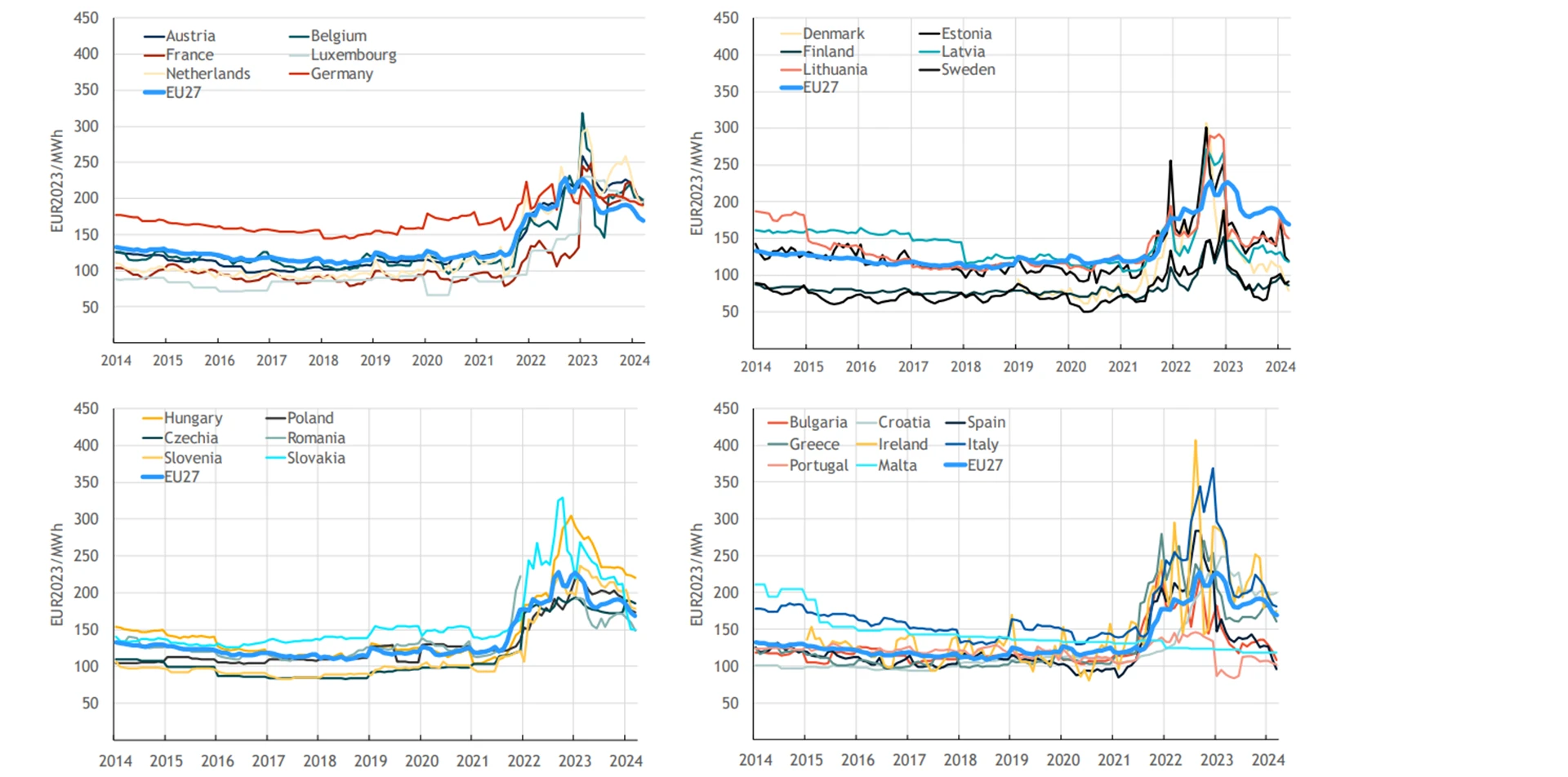The project
Enerdata, in partnership with Trinomics, LBST, Öko-Institut, E3 Modelling and Atico, was selected by the European Commission’s Directorate-General for Energy (DG ENER) to conduct a study on energy prices and costs in Europe.
This report aims to provide an objective analysis of these figures, and related data, to understand of price fluctuations, their drivers, and their impact on EU industrial and household energy expenditure, import costs, and taxation.

Strategic stakes
As the authority on EU energy policy, DG ENER works to ensure secure, sustainable, and competitively priced energy for Europe.
To develop effective policies, DG ENER required a comprehensive understanding of energy price trends and drivers, the pace and scale of price increases on consumers, and the EU's energy bill on fossil fuel imports. Furthermore, the DG ENER intended to assess the impact of energy costs on industrial competitiveness, investment decisions, and research and innovation. Finally, this study aimed to analyse the role and evolution of energy taxes within the EU.
- Enerdata contributed its proficiency in database management to collect, process, and organise huge amounts of data gathered from over 50 individual sources. Our experience in designing smart data tools supported the development of efficient, user-friendly databases for DG ENER.
- Enerdata’s Global Energy and CO2 Database and Power Plant Tracker provided data for the study, optimising time and resources used by the project with DG ENER. Our Information Services offered comprehensive, reliable, and up-to-date insights for all energies worldwide, ready to export into our clients’ databases and fuel their analyses.
- Enerdata led the task on evaluating energy prices and power generation profitability (data collection, calculations and estimations, analysis), capitalising on our teams’ best practices for working in consortiums and cooperating closely with partners.
- Enerdata’s expertise in advanced energy modelling tools supported the prospective analysis of energy price variations and their impacts on industrial competitiveness in the EU.
- Analysis of energy prices, inside and outside the EU
- Assessment of the evolution of energy prices and their drivers
- Comparisons between the EU and its G20 trading partners
- Update of the European Commission’s energy price database, with data broken down by consumer type (industry, households)
- Evaluation of energy costs for industry, inside and outside the EU (handled by partners)
- Collection and comparison of energy costs for industry, in the EU and G20 countries
- Coverage of more than 30 sectors, within and outside manufacturing
- Appraisal of the impact of energy costs on industrial competitiveness
- Decomposition analysis of energy cost drivers
- Modelling of changes in energy costs and their impacts on industrial competitiveness
- Collection and comparison of energy costs for industry, in the EU and G20 countries
- Analysis of the EU (fossil) energy import bill
- Information on the scope of study, calculation methodology of the EU energy dependency rate, and EU energy import bills by fuel
- The EU energy dependency rate calculation, total and by main fuel
- An analysis of the main drivers (import volumes by fuel, market prices of the most relevant fuel, and USD/EUR exchange rate)
- The EU energy import bill calculation, broken down by key fossil fuels (crude oil, pipe gas, LNG, coal)
- A comparison with other estimates of the EU energy import bill
- Analysis of energy-related government revenues; taxes and levies on energy products and their impact on inflation
- Data collection of taxes and levies (rates and revenues) applied to electricity, gas, oil, gasoline, diesel, and heating oil.
- Database updates and improvements
- The analysis of trends observed since 2008, with a particular focus on their evolution in recent years, following the price surge in Europe
- Databases
- Creation of MS-Excel databases for the European Commission, relying on data traceability, consistency, and smart design (simplicity and functionality)
- Update and improvement of existing MS-Excel databases
- Country factsheets
- Country factsheets summarising trends in power generation realised prices and profitability over a 10-year period
- Study report
- Final report presenting the study’s objective and scope, methodology, analysis, and results, published by the European Commission.
Study on energy prices, costs and their impact on industry and households. Final report.
Household retail prices in EU27 and other G20 countries, 2014-Q1 2024

Source: Eurostat, Enerdata EnerMonthly
Average industrial (ID band) electricity end-user prices in the EU27, 2014-Q1 2024

Source: Eurostat, Enerdata EnerMonthly
 Energy and Climate Databases
Energy and Climate Databases Market Analysis
Market Analysis

